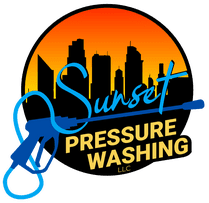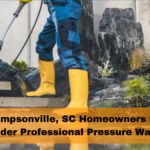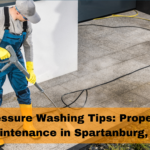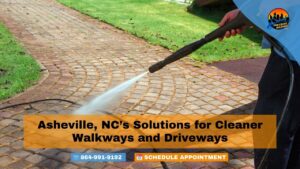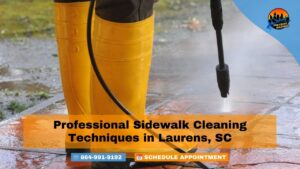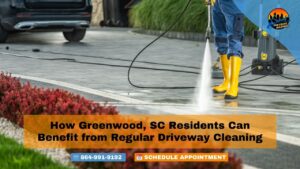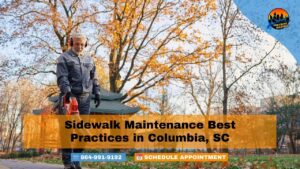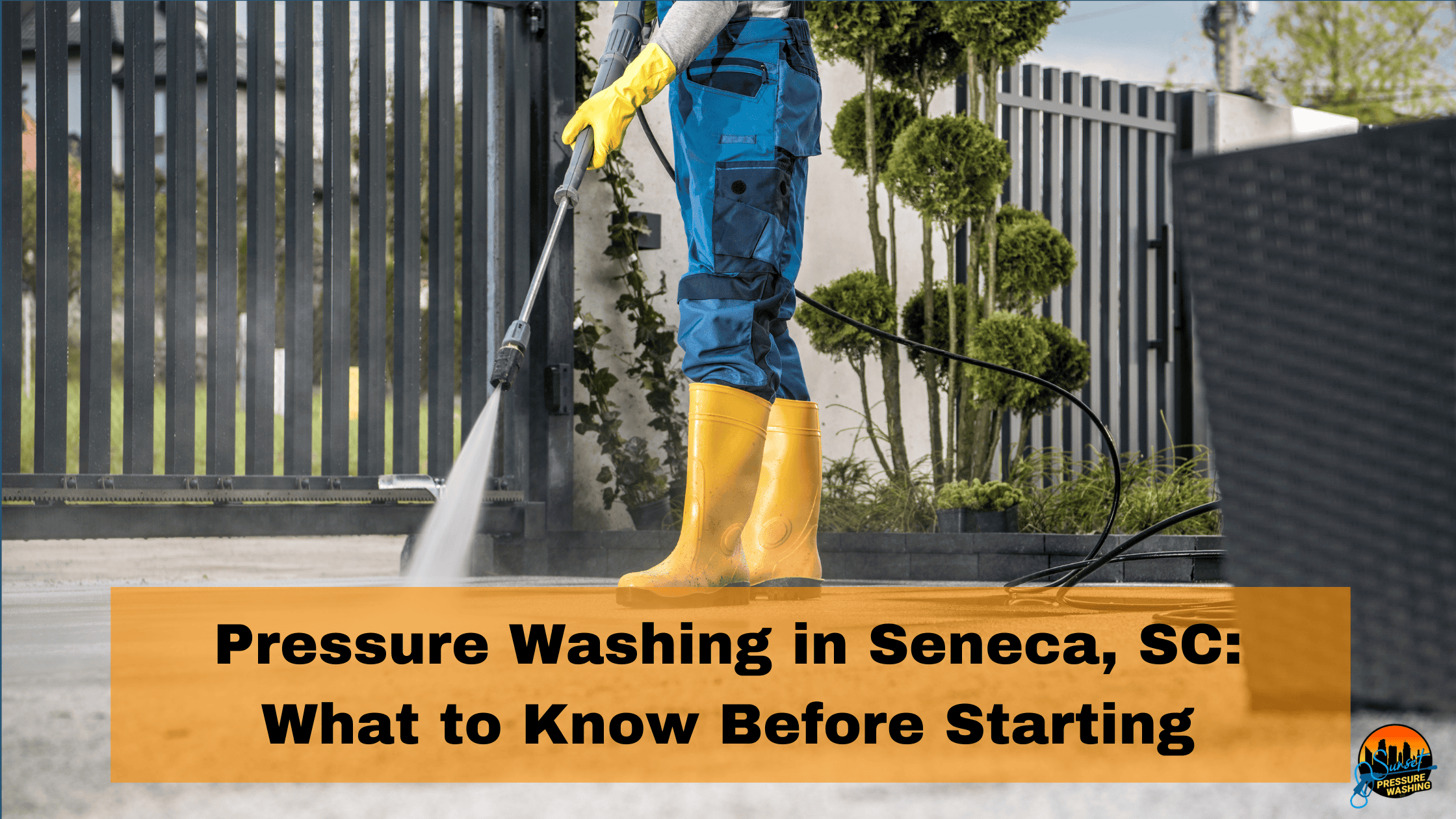
Pressure Washing in Seneca, SC: What to Know Before Starting
Pressure washing can be a transformative process for your property, removing years of dirt, grime, and environmental pollutants in a matter of hours. However, before you begin this effective cleaning method in Seneca, SC, there are several things you need to consider. From understanding local regulations to choosing the right equipment, this blog covers essential information to get you started.
Understanding Pressure Washing
Pressure washing, also known as power washing, involves the use of high-pressure water spray to remove dirt, mold, algae, grime, dust, mud, and even loose paint from various surfaces. This method is incredibly effective for cleaning buildings, vehicles, and outdoor surfaces like driveways, sidewalks, patios, and decks.
How It Works
A pressure washer uses a pump to accelerate ordinary water to high pressure, then expels it through a nozzle for maximum cleaning power against tough buildup. The effectiveness of pressure washing comes from the combination of high-pressure water and, in some cases, combined cleaning agents.
Types of Pressure Washers
Pressure washers come in various types and sizes:
- Electric Pressure Washers: Ideal for light, small jobs like cleaning patio furniture, small decks, and vehicles.
- Gas Pressure Washers: These offer more power and are suited for larger tasks like cleaning large decks, driveways, house siding, and other sturdy surfaces.
- Hot Water Pressure Washers: Used primarily for industrial or heavy-duty cleaning jobs where grease or oil needs to be removed.
Understanding PSI and GPM
When selecting a pressure washer, two critical terms to understand are PSI (pounds per square inch) and GPM (gallons per minute):
- PSI measures the pressure of water created through the pressure washer, which impacts its ability to break down dirt and grime.
- GPM measures the flow rate of water, influencing how quickly you can clean a surface.
The combination of these two factors determines the cleaning power unit (CPU) of a pressure washer, which helps gauge its overall effectiveness.
Applications of Pressure Washing
In residential settings, pressure washing is used for:
- Cleaning gutters, roofs, and downspouts.
- Removing stains from garage floors or driveways.
- Cleaning mold and mildew from patios and decks.
In commercial settings, pressure washing is essential for:
- Removing graffiti and stains from building exteriors.
- Cleaning parking lots and other large concrete surfaces.
- Preparing surfaces for painting or refinishing.
Local Regulations and Environmental Considerations
Before starting any pressure washing project in Seneca, SC, it’s important to be aware of local regulations and environmental considerations to ensure compliance and protect the natural surroundings.
Local Regulations
Local regulations may dictate specific rules regarding water usage, especially during drought conditions or in areas with water shortages. Seneca, SC may have ordinances that limit the days or times during which water-intensive activities like pressure washing can occur. Always check with the Seneca city office or local environmental agency to understand any restrictions or permits required before you begin pressure washing.
Environmental Considerations
Pressure washing can significantly impact the local environment if not managed properly. Here are some key environmental considerations:
- Water Runoff: The runoff from pressure washing can carry pollutants like oil, grease, chemicals, and other debris into nearby storm drains. These contaminants can end up in local water bodies, affecting water quality and harming aquatic life. Using methods to collect or divert runoff effectively is crucial.
- Chemical Use: Many pressure washing jobs involve detergents or chemicals to effectively remove dirt and grime. Choosing environmentally friendly, biodegradable chemicals is important to minimize the impact on the environment. Always read and follow the manufacturer’s guidelines for any chemicals you use.
- Noise Pollution: Pressure washers can be quite loud, potentially disturbing the local community, particularly in residential areas. Be mindful of the time of day you choose to operate pressure washing equipment to avoid noise complaints.
- Water Conservation: Even without strict regulations, it’s good practice to use water efficiently. Modern pressure washers often have settings that allow for maximum cleaning efficiency with minimal water use. Opting for equipment that offers these features can help conserve water.
Best Practices for Environmental Safety
- Silt Fences or Barriers: Use barriers or silt fences to contain runoff and prevent pollutants from entering storm drains.
- Washing in Contained Areas: Whenever possible, wash objects and vehicles in areas where runoff can be collected and disposed of properly, such as commercial car washes.
- Proper Disposal of Wastewater: In cases where hazardous materials are removed, such as oil or heavy metals, consider hiring a professional service that can collect and dispose of wastewater in accordance with local regulations.
Choosing the Right Equipment
Selecting the appropriate pressure washer for your project in Seneca, SC, involves understanding the different types of machines available and their suitability for various tasks. For residential pressure washing in Seneca SC, it’s important to choose equipment that is effective yet gentle enough to protect your home’s surfaces. Here’s how you can choose the right equipment for your needs.
Types of Pressure Washers
Pressure washers come in various designs and capabilities, primarily categorized by their power source and water temperature options:
- Electric Pressure Washers: These are quieter, lightweight, and ideal for light residential tasks such as cleaning small decks, patios, vehicles, and outdoor furniture. They require an electrical outlet and generally produce less power, which makes them suitable for more delicate surfaces.
- Gas Pressure Washers: Offering more power, gas pressure washers are suitable for larger residential tasks and commercial use, including cleaning siding, driveways, and second-story exteriors. They are more mobile as they do not require an electrical source, but they are louder and emit exhaust fumes.
- Hot Water Pressure Washers: These are typically used in commercial and industrial settings. Hot water is effective at breaking down oily or greasy contaminants. These units are more complex and expensive but are ideal for heavy-duty cleaning tasks.
Understanding Specifications
When choosing a pressure washer, key specifications to consider include:
- PSI (Pounds per Square Inch): This measures the pressure of water, indicating how forcefully the water strikes the surface. Residential models typically range from 1,200 to 3,200 PSI, while commercial models may exceed this range.
- GPM (Gallons Per Minute): This measures the flow rate of water. Higher GPM means more water is being used, which can clean surfaces faster but also contributes to greater water consumption.
- CPU (Cleaning Power Units): This is calculated by multiplying PSI by GPM. A higher CPU indicates a more powerful and efficient machine, suitable for tougher jobs.
Selecting the Right Nozzle
The nozzle attachment can greatly affect the performance of a pressure washer. Nozzles are categorized by the angle of the water stream they produce:
- 0-degree Nozzle: Provides a very concentrated spray for tough stains and grime on concrete and metal.
- 15-degree Nozzle: Good for general cleaning on driveways, wood decks, and siding.
- 25-degree Nozzle: Ideal for a broader cleaning coverage, suitable for vehicles, boats, and patio furniture.
- 40-degree Nozzle: Delivers the gentlest spray for delicate surfaces and light dust removal.
Considerations for Eco-Friendly Equipment
Choosing equipment with water conservation features and the ability to use biodegradable detergents can help minimize the environmental impact of your cleaning activities. Some modern pressure washers come with adjustable settings that allow you to control water flow and pressure, making it easier to use only what you need.
Safety First
Pressure washing can be a dangerous activity if not conducted properly. The combination of high-pressure water jets and potentially hazardous chemicals necessitates stringent safety measures. Here are key safety tips to consider when undertaking pressure washing tasks in Seneca, SC.
Wear Appropriate Protective Gear
- Eye Protection: Always wear goggles or safety glasses to protect your eyes from flying debris, dirt, and chemicals.
- Footwear: Use sturdy, non-slip shoes to prevent falls, especially on wet surfaces.
- Gloves: Heavy-duty gloves can protect your hands from high-pressure water and chemicals.
- Ear Protection: If you are using a gas-powered pressure washer, consider wearing ear protection as they can be quite loud.
Be Aware of Your Surroundings
- Secure the Area: Make sure that no people, pets, or unnecessary objects are in the vicinity before starting your pressure washer.
- Mind Electrical Hazards: Keep electrical cords and the pressure washer away from water puddles to avoid electrocution.
- Avoid Ladder Use: Using pressure washers while on ladders can be risky due to the push-back from the nozzle. Use extension wands for high areas instead.
Understand Your Equipment
- Read the Manual: Before operating a pressure washer, read the user manual thoroughly. Each model has specific operational guidelines and safety precautions.
- Check for Faults: Inspect the pressure washer for any signs of damage or leaks in the hose, connections, and seals before each use.
Use Correct Techniques
- Never Point at Anyone: Never use the pressure washer pointed towards people or animals as the high pressure can cause serious injuries.
- Control Pressure Settings: Use the lowest pressure setting that will effectively clean the surface to minimize the risk of damaging the cleaning surface or adjacent areas.
- Maintain a Safe Distance: Keep the nozzle at least a few feet away from the surface to start and adjust as necessary.
Handle Chemicals Safely
- Use Approved Chemicals Only: Only use cleaners and chemicals approved for pressure washing to avoid damaging your equipment and the surfaces you are cleaning.
- Ventilation: When using chemical cleaners, ensure adequate ventilation to prevent inhaling fumes, especially in enclosed spaces.
Preparing Your Area
Proper preparation is crucial for a successful and safe pressure washing session. Ensuring that your area is ready not only facilitates a smoother cleaning process but also protects your property and the environment. Here’s how to effectively prepare your area for pressure washing in Seneca, SC.
Clear the Area
- Remove Loose Items: Take away any movable objects such as outdoor furniture, potted plants, and garden tools from the area you plan to clean. This helps prevent damage to items and makes the cleaning process more efficient.
- Cover Delicate Items: For items that cannot be moved, such as fixed outdoor lighting or delicate plants, use waterproof covers or plastic sheeting to protect them from high-pressure water and cleaning chemicals.
Protect Windows and Doors
- Seal Openings: Ensure that all windows, doors, and vents are closed tightly. If necessary, use plastic sheeting and painter’s tape to seal gaps where water might enter.
- Check for Vulnerabilities: Inspect the cleaning area for any cracks or holes, especially in older homes, and seal them to prevent water damage.
Prepare the Surface
- Sweep and Pre-Clean: Remove loose dirt, leaves, and debris with a broom or a garden hose. This preliminary cleaning helps expose the areas that need intensive pressure washing.
- Pre-Treat Stains: For tough stains like oil or grease, pre-treat the area with a degreaser or a stain-specific cleaner. Allow it to sit as directed before washing, which helps in easier and more effective removal.
Safety Measures
- Secure Hazardous Areas: Mark areas with uneven ground or slippery surfaces to avoid accidents. Use cones or barrier tape to indicate where it is unsafe to stand or walk during the cleaning process.
- Inform Neighbors: If you are in a densely populated area or close to neighboring properties, inform your neighbors about your cleaning plans, especially if the noise or potential overspray could affect them.
Plan Your Cleaning Strategy
- Determine Water Flow: Check your water source and ensure it provides adequate flow and pressure for your pressure washer. If you’re using a water tank, make sure it’s filled and positioned correctly.
- Organize Your Equipment: Arrange all your tools and cleaning agents within easy reach but secure from the cleaning area to prevent them from being tripped over or damaged by water.
For projects that require a clean surface, such as painting or sealing, pressure washing is an effective way to prepare the area quickly, ensuring it’s ready for the next steps without delay.
Effective Cleaning Techniques
Using the right techniques while pressure washing not only ensures a thorough clean but also helps protect your surfaces from damage. Here are some effective cleaning techniques to employ when pressure washing in Seneca, SC.
Understand the Surface
- Surface Material: Identify the material of the surface you are cleaning (e.g., concrete, wood, vinyl, brick) and adjust your technique accordingly to prevent damage.
- Condition of the Surface: Check for any existing damage like cracks or loose pieces. Pressure washing damaged areas can worsen the condition.
Choose the Right Pressure Setting and Nozzle
- Pressure Setting: Use the lowest effective pressure setting to achieve the desired cleaning without harming the surface. Higher pressure settings are suitable for concrete and metal, while lower settings are better for wood and vinyl.
- Nozzle Selection: Choose a nozzle that provides the appropriate balance of water pressure and coverage for the task. A wider angle nozzle (25-degree or 40-degree) is generally safer for most residential cleaning tasks.
Apply Cleaning Solutions
- Pre-Application: If using detergents or cleaning chemicals, apply them to the surface before starting with the high-pressure water. This allows the solution to break down the dirt and grime.
- Proper Dilution: Ensure that any cleaning solutions are properly diluted as per the manufacturer’s instructions to avoid damage to the surface or the pressure washer.
Use Efficient Techniques
- Sweeping Motion: Clean large surfaces with a steady, sweeping motion. Move the spray across the surface in a controlled and uniform pattern to avoid streaking and ensure even cleaning.
- Maintain Distance: Keep the nozzle at a consistent distance from the surface. Holding it too close can damage the surface, while being too far away will reduce cleaning effectiveness.
Special Techniques for Different Surfaces
- Wood: When cleaning wood surfaces like decks or furniture, spray along the grain to avoid splintering. Use a nozzle with a wider spray and lower pressure.
- Concrete: For driveways or sidewalks, use a rotating or turbo nozzle to remove tough stains and debris more effectively.
- Roofs and Gutters: Use low pressure and specialized attachments to avoid damaging shingles and to ensure safety while cleaning from the ground or a ladder.
Timing and Weather Considerations
- Optimal Conditions: Avoid pressure washing in extreme heat or direct sunlight, which can cause rapid drying and uneven cleaning. Overcast days with moderate temperatures are ideal.
- Allow Drying Time: After cleaning, allow surfaces ample time to dry completely, especially before applying sealants or stains.
Post-Cleaning Care
- Rinse Thoroughly: After using any chemical cleaners, rinse the surface thoroughly with clean water to remove any residue.
- Inspect and Touch-Up: After the surface is dry, inspect for any missed spots or areas that need a touch-up. Address these spots promptly to maintain a uniform appearance.
The Best Time for Pressure Washing
Choosing the right time to pressure wash in Seneca, SC, can greatly affect the effectiveness and efficiency of your cleaning project. Weather, temperature, and other conditions play significant roles in determining the best timing. Here’s what you need to consider when planning your pressure washing activities.
Consider the Weather
- Avoid Rainy Days: While a little moisture won’t necessarily harm your cleaning efforts, heavy rain can make it difficult to dry surfaces properly and can wash away cleaning agents before they have had a chance to work.
- Choose Overcast Conditions: Overcast days are ideal for pressure washing because they prevent the sun from drying the cleaning solutions too quickly, which can result in uneven cleaning and visible streaks.
Temperature Matters
- Optimal Temperature Range: The best temperatures for pressure washing are typically between 50°F and 75°F. In these conditions, the cleaning solutions perform optimally, and the risk of the water freezing on the surface or the equipment overheating is minimal.
- Avoid Extreme Heat: High temperatures can cause the water to evaporate too quickly, and the heat can make physical labor more challenging and less safe.
Seasonal Considerations
- Spring: Many choose to pressure wash in the spring to clean off the grime and debris accumulated over the winter. This season is often ideal due to moderate temperatures and minimal pollen in the air.
- Fall: Pressure washing in the fall can help prepare your home’s exterior for the harsher winter weather, removing accumulated dirt, mold, and algae that can damage surfaces during wet, freezing conditions.
Time of Day
- Morning: Starting in the early morning allows the surfaces to dry throughout the day, reducing the chance of mildew or mold growth overnight.
- Evening: Evening can also be a good time for pressure washing as the temperatures lower and the sun is less intense, which helps avoid quick drying and ensures more effective cleaning.
Community and Environmental Considerations
- Water Restrictions: Be aware of any local water usage restrictions which might limit when and how you can use water for tasks like pressure washing.
- Consider Neighbors: Be mindful of your neighbors when scheduling your pressure washing. Early morning or late evening washing might disturb peace due to the noise generated by pressure washers.
Detergents and Cleaning Solutions
Choosing the right detergents and cleaning solutions is crucial for effective pressure washing in Seneca, SC. The correct cleaners can enhance the cleaning power of your pressure washer, ensuring a deep clean without damaging the surfaces or the environment.
Types of Cleaning Solutions
- General Purpose Cleaners: These are versatile and can be used for a wide range of surfaces, including vinyl, wood, and concrete. They are ideal for removing dirt and mildew.
- Degreasers: Specifically formulated for removing oil, grease, and grime typically found in driveways, garages, and industrial areas.
- Vehicle Washes: Designed to clean vehicles without damaging paint or finishes, these solutions often include wax to protect the surface.
- Concrete Cleaners: These are stronger and are designed to tackle tough stains like rust and tire marks on concrete surfaces.
- Wood Cleaners: Formulated to clean wooden surfaces without stripping away protective coatings or causing wood fibers to lift.
Environmental Considerations
When selecting cleaning solutions, it’s important to consider their environmental impact, especially in areas like Seneca, SC, where local ecosystems may be sensitive.
- Biodegradable: Opt for biodegradable detergents that break down quickly and don’t leave harmful residues in the environment.
- Non-toxic: Choose solutions that are free from harmful chemicals like phosphates, solvents, and other toxic agents.
- Eco-friendly Packaging: Consider products that come in recyclable or reduced-plastic packaging to minimize environmental footprint.
Application Tips
- Proper Dilution: Always dilute detergents according to the manufacturer’s instructions to ensure they are effective without being overly harsh on surfaces or the pressure washing equipment.
- Pre-Soak: Applying detergent to dry surfaces and allowing it to sit for several minutes can help break down dirt and grime before you start pressure washing.
- Use a Low-Pressure Setting for Application: Apply cleaning solutions using a low-pressure setting to avoid splattering and ensure even distribution over the surface.
Safety Measures
- Wear Protective Gear: When using chemical detergents, wear gloves, goggles, and protective clothing to avoid skin and eye contact.
- Ventilation: Ensure adequate ventilation when using volatile substances, particularly in enclosed areas like garages or sheds.
Choosing the Right Detergent for the Job
- Surface-Specific Solutions: Always use a cleaner designed for the type of surface you’re cleaning. Using the wrong type can damage the surface or result in poor cleaning results.
- Test on a Small Area: Before applying a cleaner over a large area, test it on a small, inconspicuous section to ensure it does not discolor or damage the surface.
Supports Structural Health
By maintaining clean and intact surfaces, pressure washing helps preserve the overall structural integrity of buildings. This is crucial for preventing accidents caused by structural failures, such as collapsing roofs or walls.
Aids in Pest Control
Dirt and grime buildups can attract pests, which can cause physical damage and carry diseases. Keeping areas clean through pressure washing discourages pest infestations, contributing to a safer and more hygienic environment.
Wrapping Up Key Takeaways for Pressure Washing in Seneca, SC
Whether you’re considering DIY or thinking about hiring professionals for your pressure washing needs, Sunset Pressure Washing offers a range of services tailored to enhance your property’s curb appeal and value. Specializing in pressure washing services in Seneca SC, they bring expert knowledge and the right tools to ensure your cleaning project is handled efficiently and safely.
Ready to see the transformative power of pressure washing on your property? Visit Sunset Pressure Washing Services to explore your options and book an appointment directly through this link. Give your home or business a fresh, clean look today!
